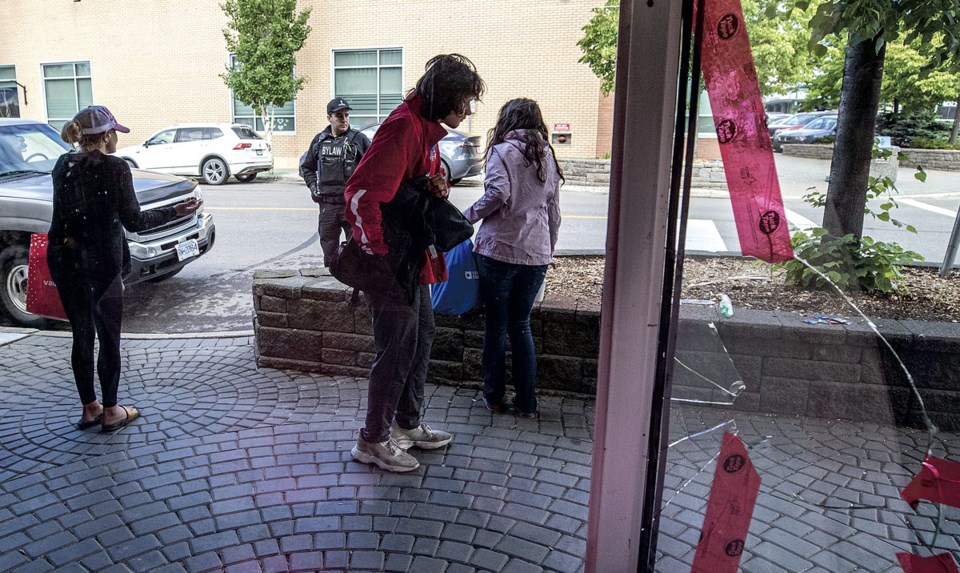The issue was simple: Should rural bylaw officers working for the regional district be equipped with basic protective gear such as pepper spray, batons, and body cameras?
The answer is a resounding yes — or rather it should have been.
But it wasn’t.
It’s unfortunate, though not surprising, that a practical conversation about the safety of bylaw officers sparked controversy during the Regional District of Fraser-Fort George board meeting on Aug. 21.
It’s an overdue acknowledgment that our world has changed, and we need to change with it. In a post-COVID reality: tempers are shorter, people are more polarized, and unpredictable encounters are increasingly common — in cities and in the countryside.
Director Dannielle Alan’s suggestion that rural officers don’t need the same tools as their urban counterparts because they only deal with “unsightly premises” ignores the very real risks these officers face.
Risks that are often even more unpredictable in rural areas, where backup may be hours away, communication is often limited, and animals — whether aggressive dogs or even wildlife such as bear — present a real physical danger.
One officer was recently cornered by a dog while others have faced threats involving firearms and hammers. In that context, pepper spray or a collapsible baton isn’t excessive — it’s basic self-protection.
This is not about escalating conflict or arming municipal employees for battle. If a simple baton or canister of pepper spray could defuse a dangerous encounter, why wouldn’t the district provide that option?
By equipping officers with basic protective gear, the regional district isn’t militarizing its workforce but rather providing its employees with the necessary tools to complete their jobs in a safe and effective manner. It is ensuring that those tasked with enforcing bylaws — from property disputes to animal control — go home safely at the end of the day.
That’s not overkill. That’s duty of care.
When the City of Prince George equipped its bylaw officers with these tools, they weren’t even deployed in their first year of use.
That’s a success story — not because the equipment gathered dust, but because officers felt safer and more confident doing their jobs. It’s the classic principle: better to have it and not need it than need it and not have it.
Some critics argue that “just because the City of Prince George does it” doesn’t mean the regional district should follow suit. But good policy shouldn’t be dismissed just because it comes from a different jurisdiction.
Opponents of this equipment, like Alan, raise concerns about Charter rights and the “message” it sends. But equipping officers with non-lethal tools doesn’t violate anyone’s rights — especially when the gear is paired with professional training and strict usage protocols.
In fact, the inclusion of body-worn cameras serves to protect citizens as much as officers, providing transparency and accountability on both sides of the badge.
The image of a bylaw officer carrying handcuffs or a baton may feel unfamiliar to some. But that discomfort should not outweigh the practical need for safety.
Officers aren’t being trained to use force — they’re being trained to avoid it, with protective tools available as a last resort. That’s the sensible approach.
Urban or rural, bylaw officers are people doing difficult jobs in unpredictable environments. They deserve equal consideration, not less, simply because they work outside city limits.
And let’s not pretend that rural communities are immune to the same social stressors affecting urban centres. Isolation, addiction, mental health struggles and conflict with authority are not exclusive to cities.
In rural areas, these challenges often go unseen — but that doesn’t mean they’re not there.
As the regional district moves forward on this, let’s put rhetoric aside and focus on facts. Providing basic protection to bylaw officers — regardless of their postal code — isn’t an overreaction.
Lives — and peace of mind — depend on it.



